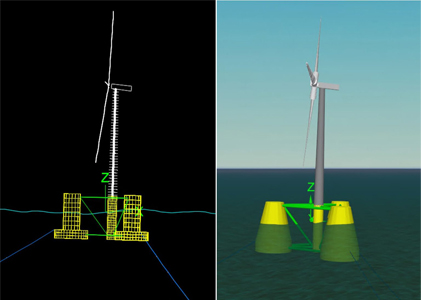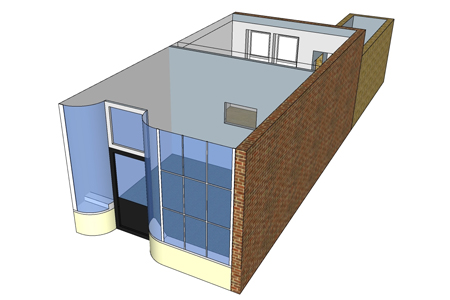-
Study
-
Quick Links
- Open Days & Events
- Real-World Learning
- Unlock Your Potential
- Tuition Fees, Funding & Scholarships
- Real World Learning
-
Undergraduate
- Application Guides
- UCAS Exhibitions
- Extended Degrees
- School & College Outreach
- Information for Parents
-
Postgraduate
- Application Guide
- Postgraduate Research Degrees
- Flexible Learning
- Change Direction
- Register your Interest
-
Student Life
- Students' Union
- The Hub - Student Blog
- Accommodation
- Northumbria Sport
- Support for Students
-
Learning Experience
- Real-World Learning
- Research-enriched learning
- Graduate Futures
- The Business Clinic
- Study Abroad
-
-
International
International
Northumbria’s global footprint touches every continent across the world, through our global partnerships across 17 institutions in 10 countries, to our 277,000 strong alumni community and 150 recruitment partners – we prepare our students for the challenges of tomorrow. Discover more about how to join Northumbria’s global family or our partnerships.
View our Global Footprint-
Quick Links
- Course Search
- Undergraduate Study
- Postgraduate Study
- Information for Parents
- London Campus
- Northumbria Pathway
- Cost of Living
- Sign up for Information
-
International Students
- Information for International Students
- Northumbria and your Country
- International Events
- Application Guide
- Entry Requirements and Education Country Agents
- Global Offices and Regional Teams
- English Requirements
- English Language Centre
- International student support
- Cost of Living
-
International Fees and Funding
- International Undergraduate Fees
- International Undergraduate Funding
- International Masters Fees
- International Masters Funding
- International Postgraduate Research Fees
- International Postgraduate Research Funding
- Useful Financial Information
-
International Partners
- Agent and Representatives Network
- Global Partnerships
- Global Community
-
International Mobility
- Study Abroad
- Information for Incoming Exchange Students
-
-
Business
Business
The world is changing faster than ever before. The future is there to be won by organisations who find ways to turn today's possibilities into tomorrows competitive edge. In a connected world, collaboration can be the key to success.
More on our Business Services-
Business Quick Links
- Contact Us
- Business Events
- Research and Consultancy
- Education and Training
- Workforce Development Courses
- Join our mailing list
-
Education and Training
- Higher and Degree Apprenticeships
- Continuing Professional Development
- Apprenticeship Fees & Funding
- Apprenticeship FAQs
- How to Develop an Apprentice
- Apprenticeship Vacancies
- Enquire Now
-
Research and Consultancy
- Space
- Energy
- AI Futures
- CHASE: Centre for Health and Social Equity
- NESST
-
-
Research
Research
Northumbria is a research-rich, business-focused, professional university with a global reputation for academic quality. We conduct ground-breaking research that is responsive to the science & technology, health & well being, economic and social and arts & cultural needs for the communities
Discover more about our Research-
Quick Links
- Research Peaks of Excellence
- Academic Departments
- Research Staff
- Postgraduate Research Studentships
- Research Events
-
Research at Northumbria
- Interdisciplinary Research Themes
- Research Impact
- REF
- Partners and Collaborators
-
Support for Researchers
- Research and Innovation Services Staff
- Researcher Development and Training
- Ethics, Integrity, and Trusted Research
- University Library
- Vice Chancellors Fellows
-
Research Degrees
- Postgraduate Research Overview
- Doctoral Training Partnerships and Centres
- Academic Departments
-
Research Culture
- Research Culture
- Research Culture Action Plan
- Concordats and Commitments
-
-
About Us
-
About Northumbria
- Our Strategy
- Our Staff
- Our Schools
- Place and Partnerships
- Leadership & Governance
- University Services
- Northumbria History
- Contact us
- Online Shop
-
-
Alumni
Alumni
Northumbria University is renowned for the calibre of its business-ready graduates. Our alumni network has over 253,000 graduates based in 178 countries worldwide in a range of sectors, our alumni are making a real impact on the world.
Our Alumni - Work For Us
Case Studies
ReNU is backed by a strong portfolio of 36 partners including 27 companies (both SMEs and multinationals), non-profit organisations, key networks, local government and prestigious academic institutes across the globe.
Students have the opportunity to work on multiple industry focussed projects alongside external clients, using research and expertise to help find solutions for specific industry challenges. Please find examples of industry case studies at the drop down links below.
Industry Challenge Group Mini-Project (C9 May 2022, cohort 1 & 2)
Client: Offshore Renewable Energy (ORE) Catapult
The Offshore Renewable Energy (ORE) Catapult is the UK’s leading technology innovation and research centre for offshore renewable energy. One of its key research areas is floating offshore wind turbines (FOWTs) and the ability to harness wind power further from shore and in deeper waters. ORE Catapult provided ReNU students with a brief to address technical uncertainties arising from deploying electrolysers on FOWTs. This involved investigating the incorporation of batteries into the system and understanding how this could reduce fatigue and wear of the electrolyser. Students carried out simulations based on data from the North Sea, identifying times when the FOWT would provide insufficient power to the electrolyser and what size battery could allow for continued operation of the electrolyser during this period.

Industry Challenge Group Mini-Project (C9 May 2022, cohort 1 & 2)
Client: Decerna
Decerna is a specialist renewable energy consultancy that helps its clients achieve tangible carbon dioxide emissions savings. This includes both residential and commercial buildings in which air infiltration is a major source of heat loss. To gain further insight into this problem, Decerna provided ReNU students with a brief to evaluate a broad range of approaches to quantifying air infiltration in buildings. In just a short period, the ReNU students were able to identify key application criteria and create a qualitative model of air infiltration based on using a tracer gas. This facilitated an assessment of the likely feasibility of the approach and highlighted key technical and commercial factors for Decerna to further investigate through subsequent potential projects.

Industry Challenge Group Mini-Project (C9 May 2024, cohort 3 & 4)
Client: CPI
Task: Viability of battery recycling
Team: Jemma Cox, Glen Hebberd, Amar Mihammed & George Rudman
CPI is a deeptech innovation specialist, working to de-risk and accelerate new products and processes to market. At the National Formulation Centre in Sedgefield, CPI staff work to optimise materials, formulations, and manufacturing processes – principally for high-value materials – across multiple sectors including: agritech & agrochemicals, composites and advanced materials; pharmaceuticals; and energy materials. As a founding member of the High Value Manufacturing Catapult, the company’s focus is to create jobs and to add value, with advanced digital solutions and sustainable process technologies being at the heart of what they do.
CPI provided our ReNU students with a project that involved researching the viability of Li-ion battery recycling in the UK. Following an in person briefing, the students took this project in multiple directions:
- Forecasting the UK’s current and future demand for Li-ion batteries.
- Evaluating current processes for battery recycling (highlighting benefits and drawbacks of each method from both a technoeconomic and sustainable perspective).
- Identifying promising recent lab-scale research that aims to extract more components of a Li-ion battery than ever before.
This research was presented to the Battery Materials team CPI, which has facilitated a better understanding of the opportunities and issues in both the UK’s battery recycling landscape and its context within the global system. This has then assisted in the prioritisation of CPI’s internal research efforts and highlighted areas where there would need to be a wider coalition of RTOs and industry to solve the relevant challenges.
Industry Challenge Group Mini-Project (C9 May 2024, cohort 3 & 4)
Client: Alexander Dennis
Task: Optimising HVAC Behaviour in Electric Buses
Team: Ruth Pollard, Divyabhan Duggal & David Roughton-Reay
Alexander Dennis is the largest bus and coach manufacturer in the UK, actively deploying electric buses on the roads to mitigate carbon emissions. ReNU students were tasked with optimising high voltage air conditioning (HVAC) systems within electric buses that can add unnecessary weight in periods when not in use. Through a comprehensive literature search the students explored alternatives to HVAC systems, looking specifically for implementation in passenger vehicles. Conducting calculations based on identified case studies, the students demonstrated feasibility in specific scenarios and reported back successfully to Alexander Dennis for further investigation.
